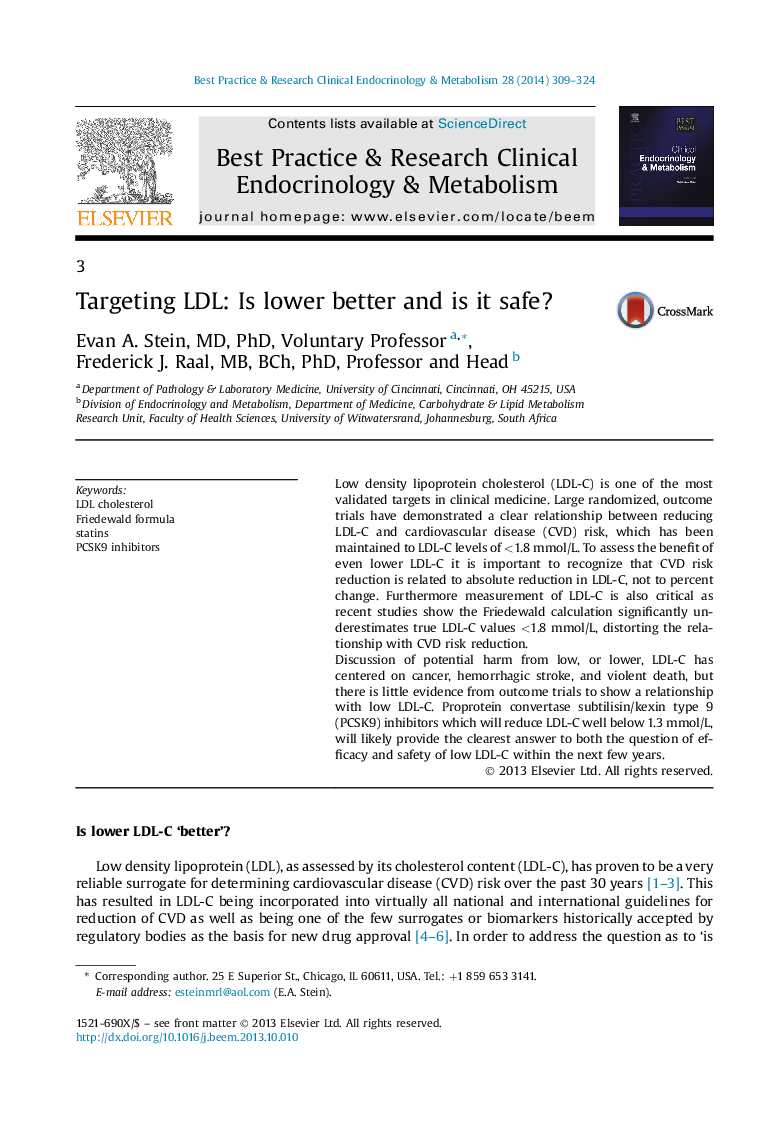| Article ID | Journal | Published Year | Pages | File Type |
|---|---|---|---|---|
| 2791623 | Best Practice & Research Clinical Endocrinology & Metabolism | 2014 | 16 Pages |
Low density lipoprotein cholesterol (LDL-C) is one of the most validated targets in clinical medicine. Large randomized, outcome trials have demonstrated a clear relationship between reducing LDL-C and cardiovascular disease (CVD) risk, which has been maintained to LDL-C levels of <1.8 mmol/L. To assess the benefit of even lower LDL-C it is important to recognize that CVD risk reduction is related to absolute reduction in LDL-C, not to percent change. Furthermore measurement of LDL-C is also critical as recent studies show the Friedewald calculation significantly underestimates true LDL-C values <1.8 mmol/L, distorting the relationship with CVD risk reduction.Discussion of potential harm from low, or lower, LDL-C has centered on cancer, hemorrhagic stroke, and violent death, but there is little evidence from outcome trials to show a relationship with low LDL-C. Proprotein convertase subtilisin/kexin type 9 (PCSK9) inhibitors which will reduce LDL-C well below 1.3 mmol/L, will likely provide the clearest answer to both the question of efficacy and safety of low LDL-C within the next few years.
